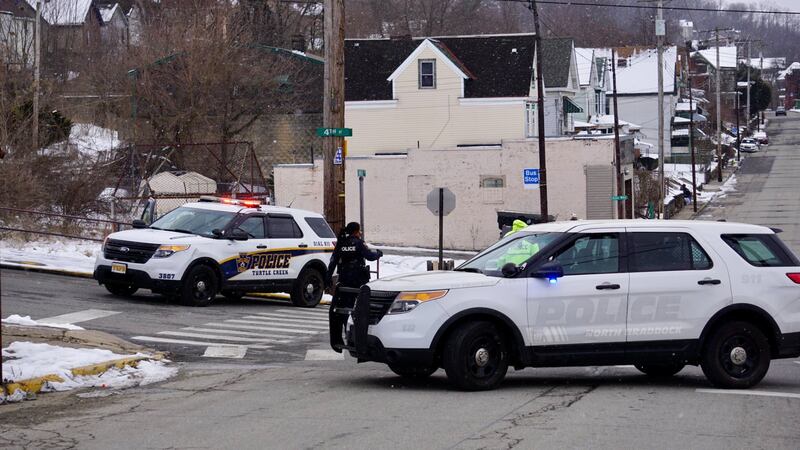PITTSBURGH — While many of us know how great our city is, we can sometimes forget all it has to offer. In the last year, as many of us were fortunate enough to count our health a blessing, others were told that they needed transplants to live.
Receiving that news during a pandemic is challenging, but while many health systems stopped the procedures, hospitals in Pittsburgh did not, and people flocked here from across the country to get lifesaving treatments.
Kim Salisbury of Pinehurst, North Carolina, knows her family loves her. But she never expected her niece to give her part of herself.
“I admire her so much. She is a good part of my life, just overwhelmed with her doing it,” said Kim Salisbury.
In the spring of 2020, doctors told Kim she needed a liver transplant.
“She was definitely more than an aunt to me,” said Kim’s niece, Amy Salisbury.
The liver and kidney are the only two organs that can be given by a living donor. The lungs, heart and tissue must be given only from deceased donors. Finding a donor can be the most challenging part for someone who needs a transplant, but it ended up being the easiest part for Kim. Her adult niece, Amy Salisbury, of Pinehurst, decided to be her living donor. The hardest part of the process turned out to be finding a place to operate during the pandemic. The family was told Pittsburgh is the place to go.
“We were a little worried, but all of our worries were diminished once we were up there,” said Amy.
TRENDING NOW:
They’re not alone in this journey because people from all over the country have come here for the same reason. Teresa Kieffer of Manistee, Michigan, also came to Pittsburgh during the pandemic. She donated her liver to a woman she didn’t even know.
“I had never heard of UPMC. I had never even considered that,” said Kieffer.
In 2020, UPMC set a record high for transplants, even with the raging pandemic. UPMC Chief of Transplantation Dr. Abhi Humar said transplants are not an elective procedure but a lifesaving one. He added Pittsburgh was lucky and didn’t see as many cases as cities like New York. UPMC saw 623 transplant surgeries system-wide, with 551 in Pittsburgh alone.
“We have seen patients coming in from outside areas that have been worse hit by COVID,” said Dr. Humar. “This area was relatively spared from COVID infections and relatively low incidence as certainly compared to many other areas around the country. These patients absolutely need it, and so waiting for it to pass over is not an option.”
While many hospitals put surgeries on hold, Dr. Humar and UPMC felt they had the tools to protect patients and staff. 16% more transplants occurred over the last four years at Children’s and Presby Hospital. Beyond just the surgery, pre- and post-operation appointments require multiple visits. Those visits led to downtime, giving families the opportunities to experience the Steel City.
“Everybody loved it. We got to do so many things. We went to Phipps Conservatory, we went to National Aviary,” said Amy Salisbury.
Kim Salisbury said they even bought Zoo memberships, adding, “I went to the zoo with my daughter before my surgery.”
It’s an unexpected type of tourism which is giving a boost to our local economy. Amy says our city is spoken of highly in a national transplant support group.
“It’s a 12-hour drive for us, almost,” said Amy. “So that speaks volumes that you know we are more than willing to drive 24 total hours to go.”
While UPMC leads the way with the most transplant surgeries in the city, they are not the only hospital that provides those surgeries. Allegheny Health Network and the VA Hospital also perform these operations. In 2020, there were 810 transplants in the city, with a majority of those coming from deceased donors.
If you are looking for more information about the living donor program, visit https://www.upmc.com/services/transplant.
Cox Media Group






